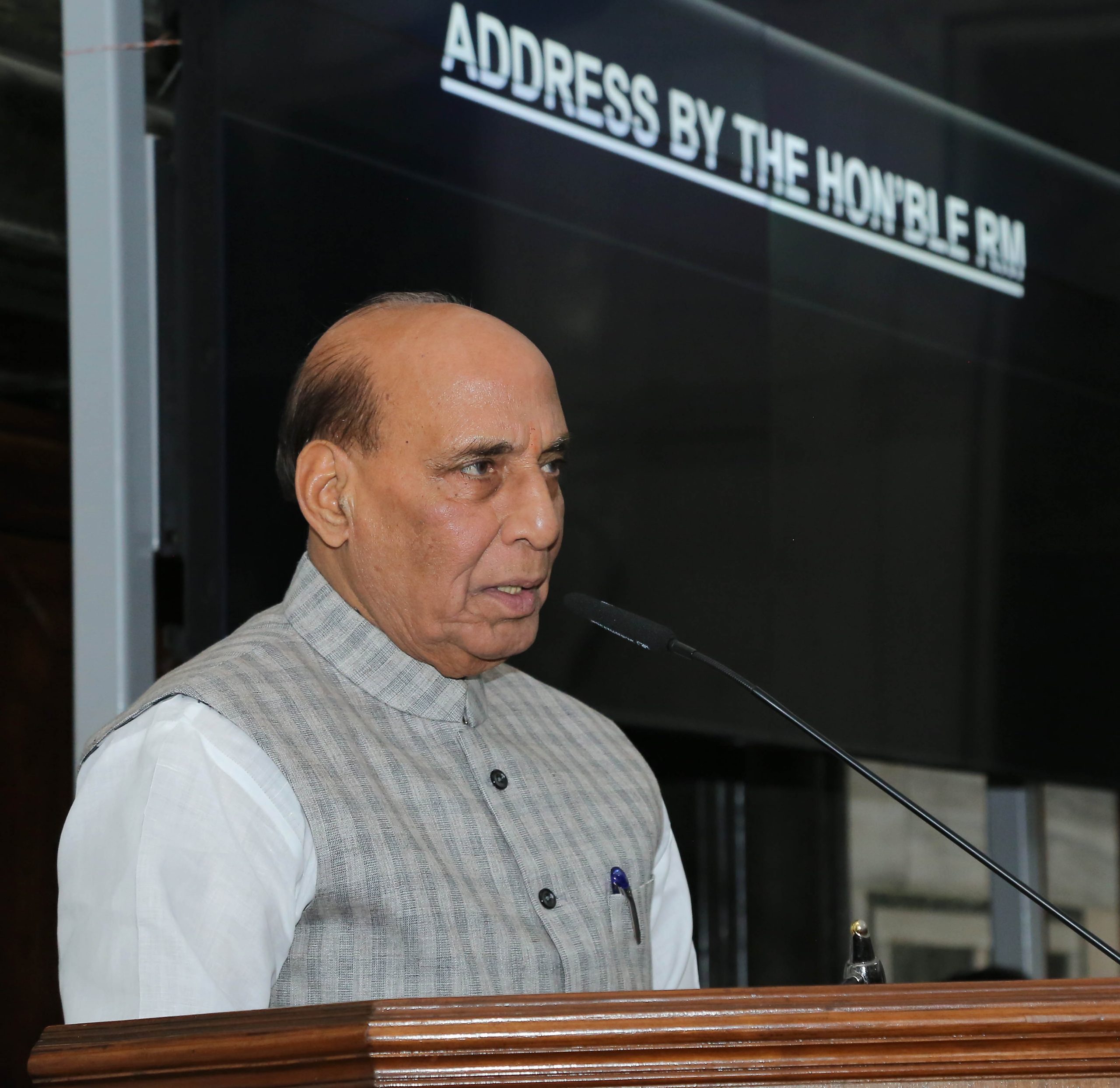Defence Minister Rajnath Singh addressed the senior leadership of the Indian Army during the ongoing Army Commanders’ Conference, a biannual event being held in New Delhi from April 1 to 4. The conference serves as a crucial platform for deliberating on security scenarios, border situations, organisational restructuring, logistics, modernisation, and the integration of niche technologies into defence strategies.
During his address, the Defence Minister reaffirmed the faith of India’s billion-plus citizens in the Indian Army, hailing it as one of the most trusted and inspiring institutions in the country. He lauded the Army’s role in safeguarding national borders, countering terrorism, and assisting civil administration during crises.
He highlighted the evolving nature of global conflicts, noting that cyber warfare, information warfare, trade, and finance have become integral to modern warfare. “Unconventional and asymmetric warfare, including hybrid war, will be part of future conventional wars,” Singh said, urging the armed forces to integrate these aspects into their strategic planning.
On the situation along the Northern and Western borders, the Defence Minister expressed full confidence in the troops’ vigilance and operational preparedness. He praised the Border Roads Organisation (BRO) for significantly enhancing road connectivity in remote border regions despite challenging conditions. Acknowledging the Army’s effective response to cross-border terrorism, he commended the synergy between the Central Armed Police Forces (CAPF), police forces, and the Army in countering terrorism in Jammu and Kashmir, which has contributed to increased stability in the region.
The Defence Minister also emphasised military diplomacy, underscoring the importance of fostering sustainable relations with foreign armies. He encouraged defence attaches to align their roles with organisational goals to enhance national security interests. Furthermore, he stressed the need for doctrinal flexibility and ongoing reforms to ensure the Army remains future-ready.
Recognising the rapid technological advancements, Singh applauded the Army’s efforts in modernisation through indigenisation, particularly its collaborations with civil industries and premier educational institutions. He lauded discussions with NITI Aayog on achieving the vision of ‘Viksit Bharat’ through technological integration.
Defence Minister flags off expeditions to Mount Everest and Mount Kangchenjunga
In a separate event, Rajnath Singh flagged off mountaineering expeditions to Mount Everest (8,848m) and Mount Kangchenjunga (8,586m) from South Block, New Delhi.
The Indian Army’s Mount Everest expedition, consisting of 34 climbers and led by Lieutenant Colonel Manoj Joshi, will follow the traditional South Col Route. Simultaneously, the Indo-Nepal joint expedition to Mount Kangchenjunga, featuring 12 Indian Army and six Nepali Army mountaineers, will be led by Colonel Sarfaraz Singh.
Additionally, an NCC expedition to Mount Everest, led by Colonel Amit Bisht, will include five girl cadets, five boy cadets, four officers, and 11 permanent instructor staff. The teams aim to reach their respective summits by May.
Commending the mountaineers, the Defence Minister praised their courage, dedication, and determination, expressing confidence that these expeditions would inspire the youth and showcase India’s leadership in high-altitude mountaineering.
The event was attended by Chief of Defence Staff General Anil Chauhan, Chief of the Army Staff General Upendra Dwivedi, Nepal’s Ambassador to India Dr. Shankar P. Sharma, and other senior military and civil officials.




















